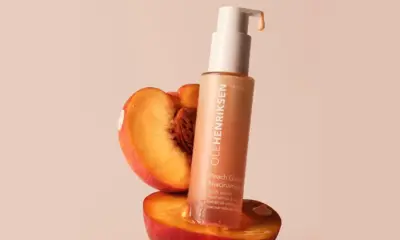Oral Health
Citronella and Propolis: New Antifungal, Antibacterial, and Antioxidant Solutions for Oral and Skin Care

A recent study published in Cosmetics explores the antifungal, antibacterial, and antioxidant properties of citronella oil (Cymbopogon nardus) when combined with caffeic acid phenethyl ester (CAPE), an active ingredient derived from propolis. This research could significantly influence the formulation of personal care products, such as mouthwash, antifungal ointments, and skin treatments.
The findings reveal that while both CAPE and citronella oil are recognized for their antimicrobial effects, their combined application greatly enhances antifungal efficacy, particularly against Candida species. The researchers propose that these organic compounds could be effectively integrated into personal care products targeting fungal infections. With the rising resistance to traditional antifungal treatments, they suggest that natural alternatives like CAPE and citronella oil may offer valuable solutions.
Citronella and Propolis: New Antifungal, Antibacterial, and Antioxidant Solutions for Oral and Skin Care. The study evaluated the antioxidant potential of the compounds using the Ferric Reducing Antioxidant Power (FRAP) test and the DPPH test. The DPPH results indicated that isolated CAPE exhibited higher antioxidant activity at 13 ± 3 mg/mL, while the combination of citronella oil and CAPE showed a moderate antioxidant effect with an IC50 value of 32 ± 9 mg/mL.
Despite the relatively lower antioxidant capacity, the antifungal activity of the compounds was significant, with minimum inhibitory concentration and minimum fungicidal concentration values of 0.5 mg/mL for citronella and 0.031 mg/mL for CAPE. The study also assessed the compounds’ ability to combat biofilm formation, a critical aspect of treating fungal infections. Researchers observed that both citronella and CAPE effectively inhibited fungal biofilms when applied for both short and extended durations (one minute and six hours).
Natural solutions are increasingly sought after in the beauty and wellness industries. Citronella and Propolis: New Antifungal, Antibacterial, and Antioxidant Solutions for Oral and Skin Care. Additionally, the research demonstrated that neither citronella oil nor CAPE caused significant irritation, as assessed by the hen’s egg chorioallantoic membrane test (HET-CAM), a reliable alternative to animal testing. This finding suggests that these compounds could be safely used in personal care formulations.
Given their ability to eliminate biofilms and inhibit fungal growth, the combination of citronella oil and CAPE has strong potential for further development in both oral and skin care applications.





















